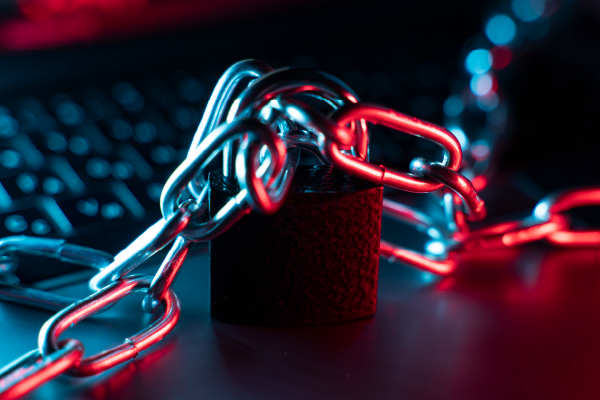Cyber security is about protecting your data from attacks from cyber criminals. These attacks are malicious and are usually aimed at accessing and misusing confidential data, extorting money or hindering the day-to-day running of a business through ransomware, phishing scams and other data breaches.
If your business has any type of online profile, it is imperative that you take cyber security precautions to protect your business and customers. Which is why we are here to help with our top 10 cyber security tips that your business needs. Some of these seem obvious, but with 4,783 cyber crime victims per 1 million users in the UK alone in 2022, you’d be surprised how handy they can be!
Tip 1: Use strong passwords
This one is quite a simple one, but an important cyber security measure is making sure that your passwords are strong. Using a combination of numbers, letters and symbols to create a password that is 8-12 characters long (or longer) will make it less easy for cyber criminals to guess your passwords. Make sure not to include any personal information in these passwords, such as your name or date of birth, as this could be easier to guess. As well as this, it is important that you use a number of different passwords, rather than relying on just one – this way if a hacker does manage to guess the correct password, they won’t be able to use it for every account that belongs to you.
Tip 2: Install reliable Antivirus and Antimalware software.
These programmes work by identifying and removing viruses, malware and other bugs. They are also able to filter any harmful email or downloads, so they are an invaluable programme to have installed on your work devices.
Tip 3: Get a VPN
VPN stands for Virtual Private Network and is a way of protecting a network connection when you are using a public network. They encrypt your internet traffic and disguise your online identity, meaning that it is more difficult for other people to monitor your activity and access your data.
Tip 4: Protect with a Firewall
A Firewall provides extra protection for your online activities, because it protects your hardware as well as your software, and it works by blocking viruses from entering your network, as opposed to targeting a virus that has already got through. Firewalls go hand in hand with antivirus software, and it is always a good idea to have both.
Firewalls can also stop hackers from attacking your network by blocking certain websites and can be programmed to restrict confidential emails being sent from your network.
Tip 5: Ignore suspicious emails
Suspicious emails, often known as phishing emails, can scam individuals into sending over confidential information or accidentally downloading viruses by clicking on a link. It is important to stay vigilant and ensure that you don’t reply or click on any links from email addresses that seem illegitimate. It is also a good idea to report any suspicious emails.
Tip 6: Secure your WiFi network
If you or your company still uses WEP (Wired Equivalent Privacy) networks, then it is time to upgrade to a WPA2 (WiFi Protected Access version 2), as it is much more secure. There is a possibility that you are already using WPA2, as it is an increasingly common way of protecting your WiFi network.
To help protect your WiFi further, change the name of your router or SSID (Service Set Identifier) and ensure that you use a complex PSK (Pre-Shared Key) password for additional security.
Tip 7: Secure any mobile devices
With mobile devices being… well, mobile, it is much easier for them to be stolen and your confidential information compromised. There are a few ways to protect your phones, laptops and tablets. The most obvious one is password protecting your devices as well as your accounts. Another way of providing extra security to your devices is to ask your IT manager to set up a remote wiping ability. This means that if your phone or laptop is lost or stolen, you can remotely delete everything.
Tip 8: Backup your data often
It is important to backup all of your data often, either onto an external hard drive or the Cloud so that, if ever the worst was to happen, you won’t lose all of your data. Often this feature is included into softwares that handle sensitive data, but it would be a good idea to run an audit to make sure that all of your data is safely stored elsewhere.
Tip 9: Have a disaster recovery plan
Sometimes, despite all our best efforts, things go wrong. It is important to have a plan for what to do if the worst case scenario becomes reality. A disaster recovery plan outlines how to respond to all sorts of different unplanned incidents, not just cyber attacks. The plan contains instructions on how to minimise the impact of a disaster so that the company will be able to resume key operations as quickly as possible.
Tip 10: Communicate the different cyber security measures to your staff
It is pointless having cyber security measures to protect your business if no one in the business knows what they are. Ensure that your employees have read and understood your cyber security policies. It might even be worth providing the team with regular cyber security awareness and training.
More than 60% of UK businesses reported that they have suffered a cyber-attack in the last 12 months. Don’t become one of the 60% – contact Mintivo today to discuss how we can help your business.


